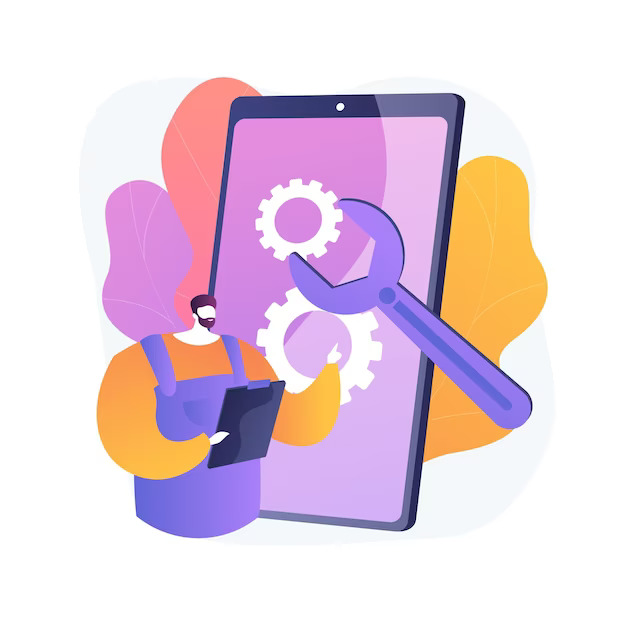
It's late at night, and you're on your third call to customer support just this week, with every ticking second stretching interminably. As you're shuffled from one representative to another, you feel less like a valued customer and more like a mere baton in a relay race.
Sound familiar?
The difference between a call center that traps you in this frustrating cycle and one that provides swift, effective solutions doesn't merely rest in the hands answering your calls. It's deeply rooted in the software driving their knowledge.
Sure, knowledge is power. But effectively channeling that power? That's where the true alchemy occurs. In this post, we'll delve into the pivotal role of knowledge management in call centers and spotlight the premier software tools that elevate ordinary centers into paragons of exceptional customer service.
Why Call Centers Need to Champion Knowledge Management
When you find yourself lost in the labyrinth of customer support calls, it's not just the individual agent you’re speaking to; it's the entire system behind them. The software, the training, the processes—all are pivotal cogs in the intricate machinery of customer support. At the heart of this machinery, directing its rhythm and efficiency, is knowledge management.
Here's a deep dive into why knowledge management is the linchpin for stellar customer service:
- Seamless Information Retrieval: Without a centralized knowledge management system, agents often find themselves rummaging through disparate sources – be it paper manuals, multiple databases, or relying on a colleague's recall. A unified system ensures that accurate, updated information is just a click away, streamlining the response time and enhancing the customer experience.
- Consistency Across Interactions: Imagine a scenario where different agents provide varying solutions to the same problem. This not only confuses the customer but also tarnishes the brand's credibility. By centralizing knowledge, call centers can ensure consistency in responses, maintaining a unified brand voice and reinforcing trust with customers.
- Proactive Problem Resolution: Centralized knowledge management often incorporates AI-driven predictive tools. These tools can assess the nature of a customer's query and instantly provide agents with potential solutions or reference material, even before the customer finishes explaining their issue. This proactive approach impresses customers, showcasing the brand's efficiency and commitment to swift problem resolution.
- Knowledge Evolution and Refinement: A centralized system isn't static; it continuously evolves. As agents encounter novel issues and devise new solutions, they can update the system in real-time. This organic growth of the knowledge base ensures that the call center is always equipped to handle emerging challenges.
- Collaboration and Team Growth: With knowledge management, the team's collective wisdom becomes a shared resource. Agents can add notes, tips, and best practices, turning individual experiences into a communal treasure trove of insights. This not only aids in individual agent growth but fosters a collaborative environment where everyone learns from each other's successes and mistakes.
- Analytical Depth: Beyond just serving as a repository, advanced knowledge management systems offer analytical capabilities. By tracking which solutions are most accessed or which issues recur, managers can glean insights about recurring challenges and address systemic issues, ensuring continuous improvement in service quality.
The Best Knowledge Management Software for Call Centers
As we've established, knowledge management isn’t just a side-feature; it’s the backbone of efficient call center operations. But with a plethora of options in the market, how do you pick the one that's right for you?
Let's dive into the best knowledge management software solutions that are not just about managing knowledge for your call center agents but also about leveraging it for optimal customer satisfaction.
1. Helpjuice
In the vibrant realm of knowledge base tools, Helpjuice emerges as a beacon for call centers. It's not just about storing information; it's about turning every agent into an expert.
With capabilities ranging from crafting in-depth call flows to generating intricate checklists, it ensures that knowledge is always at the fingertips. The platform's search engine mimics the efficiency of the best, allowing agents and even customers to find answers in a snap.
And if you're thinking about integration? Helpjuice smoothly synergizes with other tools, creating a unified knowledge reservoir.
2. Talkdesk
Talkdesk is more than just a call center tool—it's a holistic solution bridging the gap between inbound and outbound communications. Its cloud-first approach liberates teams from traditional constraints, offering seamless access across devices.
But where Talkdesk truly shines is its adaptability. Whether you're operating during peak hours or managing after-dark customer queries, it bends to fit your needs. And with integration options like Salesforce and HubSpot, it becomes the nerve center of your call operations, ensuring every interaction is informed and efficient.
3. Aspect
Welcome to Aspect—a revolutionary IVR system that transcends robotic interactions.
At its core, Aspect offers conversational self-service, creating a seamless experience for callers. But delve a little deeper, and you’ll discover its ability to personalize interactions using real-time CRM data, transforming every call into a meaningful connection.
And if you're curious about its intelligence quotient, Aspect’s voice recognition gives interactions a touch of authenticity, allowing customers to feel genuinely heard.
4. ScreenSteps
In the intricate tapestry of call center tools, ScreenSteps shines brilliantly, offering clarity amidst complexity. This platform isn’t just about documenting procedures—it’s about empowering agents with visual, step-by-step guides. Imagine every protocol, every nuanced process, illustrated with clarity.
With ScreenSteps, agents no longer wade through dense manuals; they are guided visually through every challenge. But where ScreenSteps truly excels is its seamless integration into daily workflows. Whether it's updating a procedure or accessing a guide during a live call, everything feels intuitive.
And for those pondering about adaptability? ScreenSteps easily melds with other systems, ensuring agents have a singular, unified knowledge portal.
5. Zingtree
When it comes to guiding agents through the labyrinth of customer queries, Zingtree stands out. This call scripting software isn't just about providing instructions; it's about refining the art of communication. Its interactive decision trees are more than pathways—they're blueprints to successful customer interactions.
Zingtree's deep-dive analytics offer insights, highlighting strengths and revealing areas ripe for improvement. Plus, with its exceptional CRM integration capabilities, agents always have a holistic view of customer histories, ensuring every conversation is contextual.
6. TalentLMS
In the ever-evolving world of call centers, continuous learning is paramount. Enter TalentLMS—a platform where training meets engagement. Whether it’s designing immersive courses or introducing competitive gamification elements, TalentLMS ensures agents aren’t just learning; they're evolving. The platform’s robust analytics provide a bird's-eye view of progress, spotlighting top performers and identifying knowledge gaps. And the best part? It’s all packaged in an intuitive interface, making knowledge management feel less like a chore and more like an adventure.
7. Slack
Collaboration is the heartbeat of dynamic call centers, and Slack ensures that pulse never wavers. More than a communication platform, Slack is the virtual watercooler, fostering organic discussions and brainstorming sessions. Channels keep conversations structured, while app integrations ensure resources are always within arm's reach. Whether it’s sharing a quick update or delving into a deep-dive discussion on customer feedback, Slack is the linchpin holding it all together.
8. Avaya
Step into Avaya’s universe—a place where voice systems become more than just mechanized responses. Avaya has elevated IVR from mere automation to a deeply personalized customer journey. At its foundation, Avaya provides voice prompts guiding callers effortlessly. But the magic unfolds when its system taps into real-time CRM data, adding layers of personalization to each interaction. Its speech analytics, bolstered by natural language processing, ensures customers aren't just understood—they’re genuinely felt.
9. ScriptRunner
ScriptRunner isn’t just a tool—it’s the compass guiding agents through the intricate alleys of customer interactions. More than mere script instructions, ScriptRunner is the art and science of conversation, intertwined. Its dynamic scripting adjustments breathe life into every call, ensuring agents navigate situations with poise and relevance. Delving deeper reveals its analytical prowess, constantly monitoring and suggesting script optimizations. Integrating seamlessly with popular CRMs, it guarantees every conversation is rooted in history and context.
Features:
- Dynamic Script Adjustments: Alter scripts based on customer interactions.
- Performance Analytics: Measure script effectiveness.
- Feedback Collection: Continually refine scripts based on agent input.
10. HelpScout
Navigating the waters of customer support, HelpScout emerges as a trusted compass. It’s not merely a helpdesk—it's an experience. Designed with an empathetic touch, HelpScout ensures every customer interaction feels personal, never making them feel like a ticket number. At the heart of HelpScout lies its intuitive interface, making agent interactions smooth and efficient.
Features:
- Shared Inbox: Manage emails from multiple channels in a single collaborative space.
- Beacon: An integrated chat system, enabling real-time conversations with customers.
- Docs Knowledge Base: Craft detailed articles and guides for self-service support.
- Reporting: Dive deep into performance metrics and customer satisfaction insights.
11. Zendesk
In the bustling world of customer service, Zendesk stands tall as a beacon of resolution. Beyond its role as a helpdesk, Zendesk is a holistic platform aiming to enhance the entire customer journey. Its suite of tools is crafted to ensure every query, every concern, is addressed with precision and care.
Features:
- Omnichannel Support: Seamlessly manage customer interactions across email, chat, phone, and social media
- Automation & AI: Streamline workflows and use AI-driven responses for quick issue resolution.
- Performance Analytics: Get insights into agent productivity, ticket volume, and customer satisfaction.
Wrap Up
Investing in the right knowledge management software can revolutionize a call center’s operations. Not only does it empower agents with the right information at their fingertips, but it also promises customers a smooth and effective experience. As we move into an era where customer expectations are higher than ever, having the right tools in place is not just a luxury—it’s a necessity.





